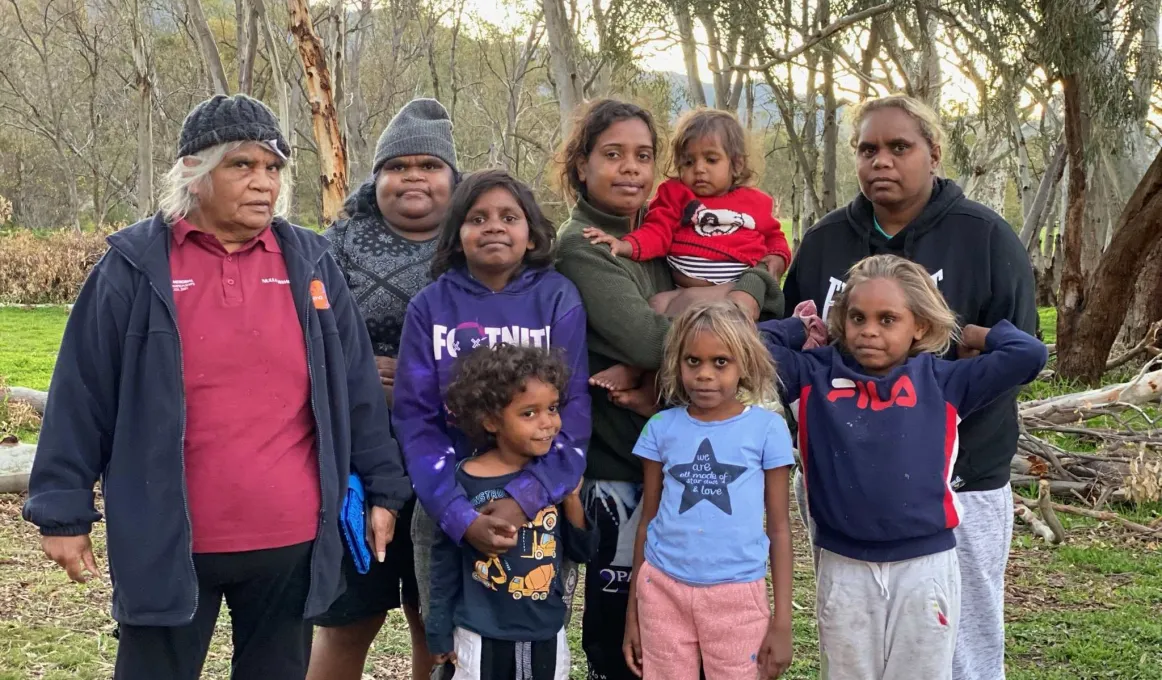Protecting Our People

Camp Willochra near Port Augusta, SA provided a safe and comfortable place for Aboriginal people cut off from Community by COVID-19 restrictions.
The onset of COVID-19 around Australia has separated Aboriginal and Torres Strait Islander families and stranded people outside their communities because of quarantine rules.
Social distancing regulations present further difficulties for those who would normally stay with friends or family when off Country.
In mid-May, Tony Freshwater of the Indigenous Land and Sea Corporation decided to act to ease the suffering of those who were in social isolation in Port Augusta and surrounding regions in South Australia.
Following discussion with Kokatha Aboriginal Corporation RNTBC (KAC) who agreed to facilitate and administer the proposal, he worked with Lavene Ngatokorua from Kuyani and Davenport communities, Linda Dare from Barngarla community and Glen Wingfield from Kokatha community to develop a plan to support community members.
The plan was called Protecting Our People and David Kelly, Principal Consultant from McMurtrie Company Marketing, worked with KAC to implement the plan, with BHP Billiton providing funding for 3 months.
‘The project was designed to help anyone needing to isolate in quarantine or requiring accommodation, food, medical supplies, camping and bedding supplies and transport to accommodation or back to Country,’ David said.
‘The scope included people living in Port Augusta and Regions, those who visit the region and those who have to travel through the region to get home.’
‘It also includes people needing to get away from domestic violence, and those who need to live temporarily in a safe location, with warmth, security, food and essential items.’
Camp Willochra, an Anglican Diocese Camp, just outside of Port Augusta was used to house the stranded community members.
Normally used for school, church, corporate and sporting camps, Camp Willochra now became a temporary haven.
‘The people no longer call the place Camp Willochra – they call it Camp Wiru…which means Camp Beautiful,’ David said.
One stranded community member said, ‘The worst thing about the camp is leaving it.’
‘Many people helped by the project arrived with nothing other than the clothes on their back or little else,’ Glen Wingfield said.
‘More than 250 people, including children, were helped in the first three months of the project.’
Organisers also developed strategies in the event of a potential COVID-19 outbreak in communities.
‘Giving First Nations people the opportunity to undertake their quarantine period at the camp, helped reduce the burden on already stretched public and private support systems and “minimised detrimental social, cultural and economic impacts”,’ Linda Dare said.
‘Another outcome of the project was that organisers were able to train people from the Barngarla, Kokatha and Kuyani communities in project and business management, governance and other relevant skills.’
Lavene Ngatokorua said that the camp had also created a safe corridor for ‘our highly transient people’.
‘It educated the communities on the importance of hygiene and social distancing and the danger to them if they did not maintain standards.’
‘Ignoring the guidelines around preventing the spread of COVID-19, could have “devastating results” on the Aboriginal community,’ Lavene said.
The project organisers and camp volunteers witnessed significant changes in those they served.
‘We saw improved health and nutrition, reduced homelessness and greater awareness of COVID-19 and its potential impacts and how to handle it,’ David said.
‘We saw excitement at receiving the swags, bedding, clothing, toiletries etc. that we provide.’
Around 20 people assisted the homeless including the Project Team and volunteers.
‘Each has shown great enthusiasm and wishes to continue helping and continually improving the outcomes for the people,’ David said.
The project is testament to how multiple communities can work together for the greater good - not only across the 3 communities running the project but in assisting others such as those returning further north to the APY Lands.
Such is the success of the project that funding has been extended for another 3 months at a higher amount, under a different model.
People with high needs in the Communities are identified and supplied with accommodation kits (including swags and blankets), medical and cleaning kits (including sanitisers and cleaning products), and food kits (including kangaroo meat and tails, chops, sausages, fruit and vegetables).
If you are in the area and need assistance, contact one of the three community leaders or ring David Kelly on 0412 205 205.
Find out more
BHP Billiton was the first organisation to fund the project. Since then more organisations have provided support.
They include The Salvation Army, Hutt Street Centre Adelaide, Good360 Sydney, SA Bushfire Support – Tell Us What You Need (Adelaide) and Essentials 4 Women (Adelaide); McMurtrie Company Marketing, ILSC and various individuals including Alison Mundy, Giac Consalvo and Tony Freshwater.